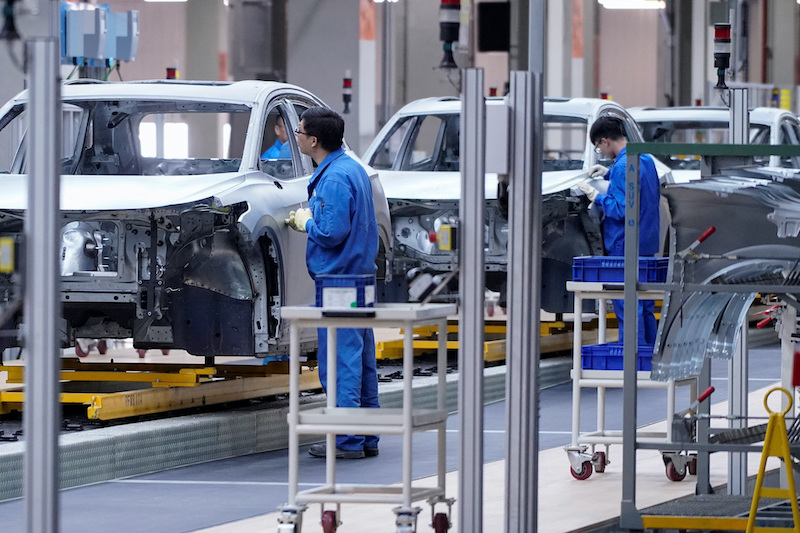News that two large German companies – Volkswagen and BASF – are rethinking their investments in China’s troubled Xinjiang province prompted an appeal from Beijing on Monday for them to stay.
China’s foreign ministry said this morning that it hoped enterprises in Xinjiang would “cherish” their investment opportunities – and not believe “rumours” by rights groups, and others about forced labour.
Forced labour in Xinjiang was a “fabrication” by external forces looking to hurt China’s development, and the relevant enterprises should respect the facts and distinguish between what is right and wrong, Mao Ning, a ministry spokeswoman said at a regular news conference, when asked about the concerns of German companies there.
ALSO SEE: Investors in China Shadow Bank ‘Furious’ Over Payouts – Guardian
Rights groups have presented documentation that the ethnic minority Uyghur population is subjected to forced labour in detention camps, pressuring Western companies in Xinjiang to audit their operations in the region. Beijing has vehemently rejected the allegations.
“Some political forces have spread too many rumours about Xinjiang in the world and created too much false information,” said Mao.
“We hope that the relevant enterprises can respect the facts, distinguish right from wrong, and cherish the opportunities for investment and development in Xinjiang,” she said.
On February 9, German chemicals giant BASF said it would sell its stakes in two joint ventures in Xinjiang, after rights groups documented abuses including forced labour in detention camps.
BASF said recently published reports related to its joint venture partner contained serious allegations that indicated activities “inconsistent” with the company’s values.
Several days later, Volkswagen said it was in talks with its joint venture partner in China over the future direction of its business activities in Xinjiang.
Stephan Weil, the premier of the German state of Lower Saxony – Volkswagen’s second-biggest shareholder – has called the reports of forced labour “concerning”, adding his government supported reviewing different scenarios for the business.
- Reuters with additional editing by Jim Pollard
ALSO SEE:
Volkswagen’s China Troubles Worsen Amid New Forced Labour Claim
Senior Auditors Wary on Review of VW Plant in China’s Xinjiang
$640m of SE Asian Exports Held up at US Ports Over Xinjiang Rules
China Sanctions US Firm Over Xinjiang-Related Investigations
US Puts More Chinese Officials, Firms on Xinjiang Sanctions List
Volkswagen Buys $700 Million Xpeng Stake to Lift China EV Share
Volkswagen Says ‘Don’t Want to Give Up’ China EV Market
China Should Release All Detainees in Xinjiang, UN Says
























